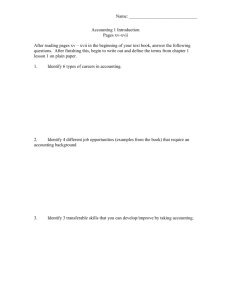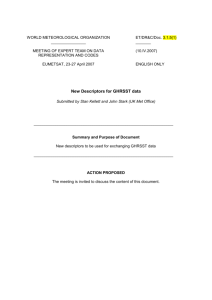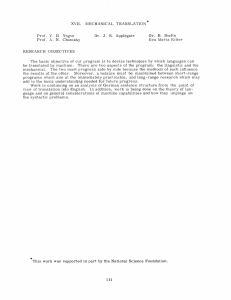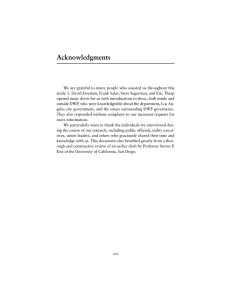GXVII-53-RUNE
advertisement
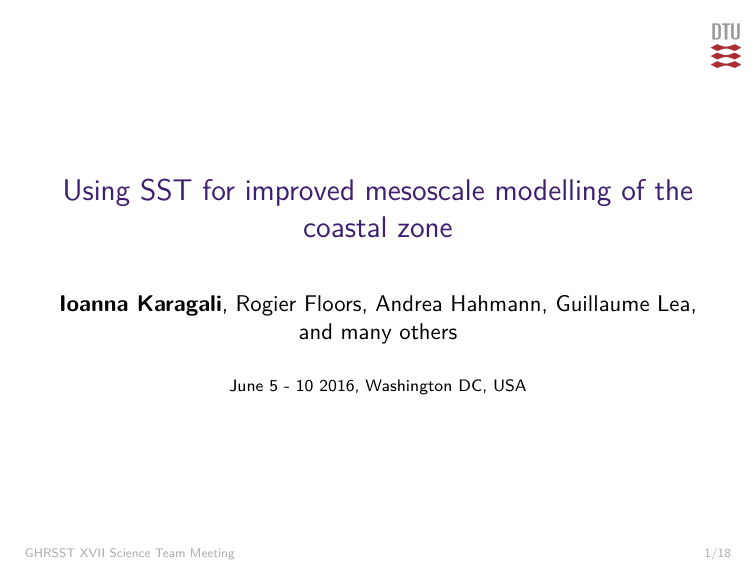
Using SST for improved mesoscale modelling of the coastal zone Ioanna Karagali, Rogier Floors, Andrea Hahmann, Guillaume Lea, and many others June 5 - 10 2016, Washington DC, USA GHRSST XVII Science Team Meeting 1/18 Outline 1 Introduction 2 The RUNE Experiment 3 Modelling 4 Summary GHRSST XVII Science Team Meeting 2/18 Motivation Many offshore wind farms planned in near-coastal waters: high winds easier connection to the grid Model uncertainty of the coastal wind climate is large: roughness changes stability changes Is the accuracy of mesoscale models in capturing the coastal flows, accurate? GHRSST XVII Science Team Meeting 3/18 RUNE How can mesoscale models be enhanced to better predict near-shore wind resources? Reducing Uncertainty of Near-shore wind resource Estimates (RUNE) If and how can the uncertainty of modelled near-shore wind ressource estimates be reduced using short-term in situ lidar measurements If yes –> By how much? Campaign duration: November 2015 - February 2016 GHRSST XVII Science Team Meeting 4/18 1 Introduction 2 The RUNE Experiment 3 Modelling 4 Summary GHRSST XVII Science Team Meeting 5/18 Measurement Set-up 220 200 1 dual Doppler system 180 160 Resolution ∼50 m height [m] 140 120 100 80 Scanning for ∼1 s 60 40 6266 6265 20 6264 6263 6262 0 438 1 sector scanning system Resolution ∼200 m 6261 440 6260 442 444 northings [km] 6259 446 448 6258 450 eastings [km] Figure: 3D overview of the measurements. Blue points: range gates from the scanning LIDAR, black points: dual Doppler, vertical lines: profiling LIDARs. Scanning for ∼45 s at 60° 4 profiling LIDARS Resolution ∼20 m Figure: Loctions of the onshore LIDARs, the floating LIDAR and the wave buoy. GHRSST XVII Science Team Meeting 6/18 Example of Measurements Figure: Carrier to Noise Ratio (CNR) as a function of distance (left) and scanning pattern (right). GHRSST XVII Science Team Meeting 7/18 1 Introduction 2 The RUNE Experiment 3 Modelling 4 Summary GHRSST XVII Science Team Meeting 8/18 WRF 2 SST products Daily DMI L4 SST 0.02 deg Daily OI SST v2 0.25 deg 2 land use classifications USGS CORINE (250 m) 2 PBL schemes MYJ YSU 4 spatial resolution set-ups 18, 6, 2 km 12, 4, 1.3 km 9, 3, 1 km 13.5, 4.5, 1.5, 0.5 km GHRSST XVII Science Team Meeting Figure: Domain configuration for the RUNE sensitivity simulations 9/18 Example of land uses and resolution Figure: Inner domains at various horizontal resolutions with the CORINE land use. Figure: USGS (top) & CORINE. GHRSST XVII Science Team Meeting 10/18 Sensitivity of the coastal gradient Figure: Wind speed evolution from offshore (left) to onshore (right) for different heights GHRSST XVII Science Team Meeting 11/18 Sensitivity Tests Figure: Mean wind speed profile from the cup anemometers (c) and different WRF set-ups, at Høvsøre. Right: RMSE of the wind speed profile between measurements and WRF simulations. GHRSST XVII Science Team Meeting 12/18 Combined LIDARs, WRF & TerraSAR-X Figure: LIDAR Dual & Sector scans, Profilers, WRF & TerraSAR-X on December 10 2015, 06:00. GHRSST XVII Science Team Meeting 13/18 WRF vs LIDARs Figure: Mean wind speed using 3368 10-min measurements with 100% availability of the DD up to a distance of 2 km offshore and onshore (total 5 km). GHRSST XVII Science Team Meeting 14/18 WRF vs LIDARs Figure: Mean wind speed using 1904 10-min measurements with 100% availability of the DD up to a distance of 5 km offshore and onshore (total 7 km - not filtered by wind direction). GHRSST XVII Science Team Meeting 15/18 1 Introduction 2 The RUNE Experiment 3 Modelling 4 Summary GHRSST XVII Science Team Meeting 16/18 Summary NS_BS_L4_SST now routinely processed as input for WRF At 50 m, YSU PBL simulations agree well with observations Jump at the coastline for 100 & 150 m heights, due to instrument limitation Offshore wind speed difference ∼0.3 m s−1 due to resolution GHRSST XVII Science Team Meeting 17/18 Thank you! GHRSST XVII Science Team Meeting 18/18
